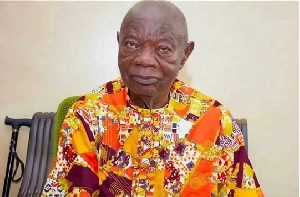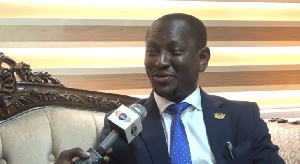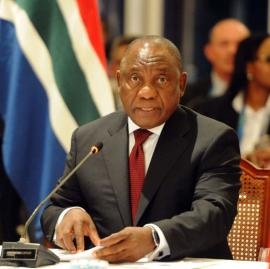- Home - News
- Elections 2024
- News Archive
- Crime & Punishment
- Politics
- Regional
- Editorial
- Health
- Ghanaians Abroad
- Tabloid
- Africa
- Religion
- Photo Archives
- Press Release
General News of Sunday, 13 April 2025
Source: www.ghanawebbers.com
Disinformation law must target national security threats, not free speech—Former Deputy Attorney-General
Former Deputy Attorney-General and Minister for Justice, Mr. Alfred Tuah-Yeboah, has cautioned the government against using its proposed anti-disinformation legislation as a tool to suppress free expression.
Speaking on Joy News on Saturday, April 12, 2025, Mr. Tuah-Yeboah acknowledged the threat of misinformation but stressed that any legislation must protect the constitutional right to free speech.
“I’ve said this because of the right to free speech. It’s a constitutional and fundamental right—people must be allowed to express dissent,” he noted.
His comments come in the wake of an announcement by Communications Minister Samuel Nartey George that a bill aimed at tackling disinformation will soon be presented to Parliament. The Ningo Prampram MP says the proposed legislation will offer a clear legal framework to address the growing problem.
While supporting efforts to combat false information that affects national security, Mr. Tuah-Yeboah warned against vague laws that could be weaponised against critics.
“If you have a law that puts stumbling blocks on free expression, then there are reasons to worry,” he said. “But if misinformation threatens national security, then we must act decisively.”
He also referenced Ghana’s legal reforms, including the repeal of criminal libel laws in 2001, and highlighted Section 208 of the Criminal Offences Act, which currently addresses false publications likely to cause fear and panic.
“Criminalising speech has been outlawed in Ghana. The remaining provision is Section 208, but even that has a broad interpretation, and if abused, could lead to unnecessary arrests,” he warned.
Mr. Tuah-Yeboah recommended that the government consider standalone legislation with well-defined thresholds to prevent misuse and ensure that national security concerns are addressed without curtailing public discourse.
“If we can craft a precise law with clear scenarios, I’ll fully support it,” he added.
Entertainment










